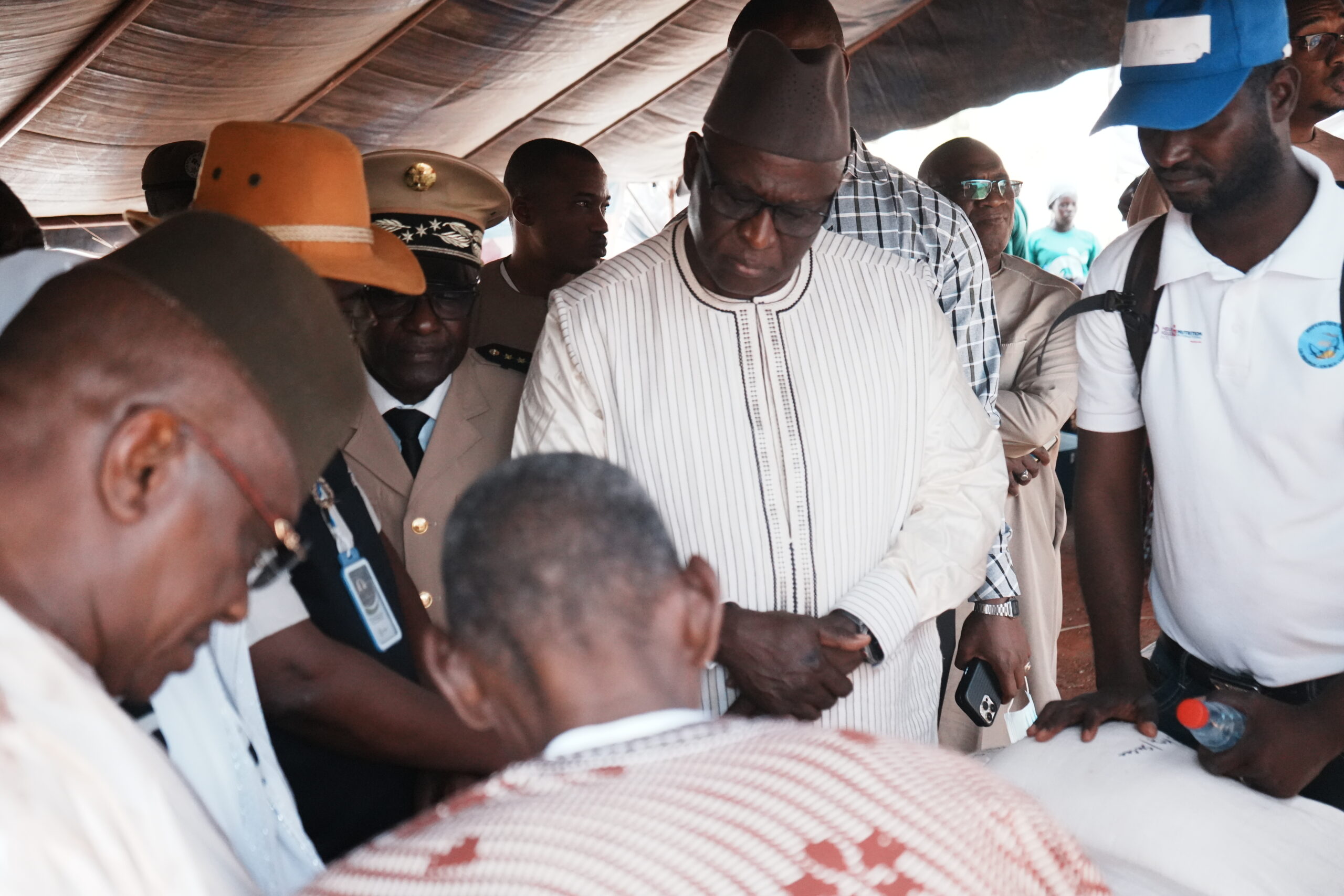Sugu Yiriwa Facilitates the Sale of 2,500 Tons of Millet
Since 1984, Sidiki Badian, a businessman from Koutiala, Mali, has sold cereal products for a living—a job he inherited from his father, who was also a grain salesman. At first, his business model consisted of buying cereal during rural market days and reselling it for a profit in cities. He found opportunities to expand when he began collaborating with international development organizations in 2004.
More recently, Badian participated in business trainings and trade events organized by the Feed the Future Mali Sugu Yiriwa activity, like stock exchanges and seed fairs, and he began selling some of his agricultural commodities through Sugu Yiriwa.
“Sugu Yiriwa brings together all types of agricultural actors,” he said. “Recently, I provided 88 tons of cereals and 200 tons of fertilizer.”
Sugu Yiriwa is a five-year activity designed to strengthen market systems while sustainably improving household incomes and the nutritional status of women and children in Mali. Around $662,000 (400,000,000 FCFA) in agricultural commodities was mobilized by the activity in 2022 to provide direct support to 3,183 people affected by the global food crisis and price shocks, reducing the risk of food insecurity and improving livelihoods.
During the launch of these activities, Badian represented suppliers and highlighted his collaboration with Sugu Yiriwa to the former Minister of Rural Development, Modibo Keita, who attended the event.
“Samples of my products were on the table,” he said. “There were food packages composed of cereal products, including millet, soy, and peanuts.”
With the Malian government banning cereal exports in 2021, Badian found himself with a significant amount of unsold stock. Until that point, a large portion of his revenue was made from exports.
“Last year, I applied for public tenders from the department in charge of food security and it was only part of my maize stock that I was able to sell last September. Millet was not included,” he said.
At the launch event, former Minister Keita learned that Badian had a leftover stock of millet. Given the domestic need for cereal at a national level, the Minister initiated discussions for the Malian government to buy his remaining stock.
“The next morning, an order came in from the Office des Produits Agricoles du Mali (OPAM),” Badian said, “and I received a notification to ship 2,500 tons of millet, worth $1,134,722 (687,500,000 FCFA) to Mopti.”
Badian contends that this contact with government officials, facilitated by Sugu Yiriwa, was directly responsible for this game-changing order.
“If not for these kinds of events, we rarely have the opportunity to meet and converse with the Ministers, let alone exchange contacts and benefit from business opportunities,” Badian said.
By connecting producers, sellers, and buyers, Sugu Yiriwa has driven a total of $2,736,279 (1.66 million FCFA) in financial transactions in its second year. In addition to facilitating networking events, the activity has trained over 100 agricultural traders and suppliers. Badian is evidence that Sugu Yiriwa’s approach is helping to improve the organization of agricultural actors so they can improve food security, better meet the needs of the local market, and expand regional sales.



